The Top Exits of 2019 So Far
Category: Uncategorized
The ultimate aim of most entrepreneurs when starting a business is surely an impressive “exit”, whereby their business is sold to a larger corporate, or admitted to a public stock exchange such as the London Stock Exchange in an initial public offering (IPO). Even relatively small exits, say in the realm of the tens of millions of pounds, can provide a significant financial reward to entrepreneurs if they still own a significant part of this business. It is the prospect of this potentially sizeable payout, many commentators, theorists, and policymakers agree, which incentivises people to undertake the very risky venture of starting a new company. In doing so, this incentive helps drive the innovation economy. Whilst 2019 has been rocky for the UK in terms of politics, its fast-growth business ecosystem still seems to be thriving. In this post, we’ve highlighted the top exits by fast-growing British businesses in the first half of this year.
Important note: this article lists the top exits by British companies that have fulfilled one of our “fast-growth” triggers. As such, it is not a list of the top exits by any British companies, but rather the companies tracked on the Beauhurst platform.
So far in 2019 there have been over 200 acquisitions, but just three IPOs.
The Top Exits of 2019: Acquisitions

worldfirst┃$700m
WorldFirst offers an online platform through which both businesses and personal users can exchange currency and transfer money internationally. This makes it a close competitor to businesses such as Transferwise and WorldRemit, who have received much more publicity and as such are much better known. The reasons for this become clear when you look at WorldFirst’s funding history: the company bootstrapped its way to profitability, only taking on equity finance in its later stages of growth.
Founded in 2004 by two Citigroup bankers, WordFirst represented one of the first challengers to the industry incumbents operating in the international payment processing market. Oddly, their past financials state the company achieved a turnover in the billions prior to 2015, when they dropped unexplainably to 37m. Operating profits didn’t drop, however, and grew continually up until the acquisition, when they sat at £8m. It’s unclear whether this massive drop is due to an accounting error or a deliberate change in measuring their sales.
That being said, their recent growth in sales elevated them to scaleup status, and they won several prestigious high-growth awards, including a place on Fast Track’s International 200, and the Queen’s Award for International Trade. In February of this year, they were acquired by the Chinese payment processing giant Ant Financial for $700m. This acquisition value represents a multiple of around 70x their operating profits, suggesting the acquisition bestowed value to Ant Financial other than cash flow.

Interestingly, Ant Financial’s attempt to acquire US payment processing firm MoneyGram was blocked in 2018 on national security grounds. The acquisition of WorldFirst thus represents Ant Financial’s first expansion into western markets, suggesting the acquisition had certain strategic value for the firm (which would also help explain the large valuation).

Alexander dennis┃£320m
Like WorldFirst, Alexander Dennis also incorporated back in 2004. Their product is very different, however: the manufacture of coaches and buses. That this company operates in the manufacturing industry is fairly remarkable – generally, the UK’s fast-growing business ecosystem is dominated by service based enterprises (reflecting the rest of the UK economy). Alexander Dennis thus represents a rare success story from this declining sector, and its sizeable acquisition by Canada’s international bus manufacturer NFI Group should be celebrated.
Alexander Dennis elicited huge growth in turnover in the 2010s, rising from £360m in 2011 to £630m in 2018. Again similar to WorldFirst, this growth elevated them to scaleup status. When they were acquired for £320m in 2019 their operating profits sat at 31m, suggesting a profit multiplication of around 10x was used for their valuation.
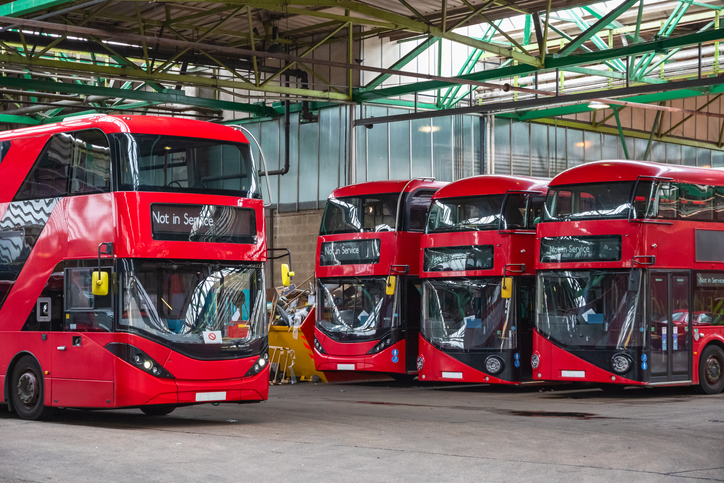

audio network┃£178m
Also a scaleup (there is a pattern emerging here), Audio Network’s software-as-a-service platform provides access to a wide range of self-produced musical pieces and scores. Their chief market is for content creators looking to augment their media with background music. Audio Network marketing material indicates they have around 150,000 tracks available for users, with “global clearance”, i.e., anyone can use the platforms tracks, without fear of copyright litigation. Clients include the BBC, NBC, and Vice. Famous works that feature their music include Killing Eve, and Straight Outta Compton.
Incorporated back in 2001, this company is fairly old when compared with the rest of the UK’s fast-growth business ecosystem. After a relatively slow start in the 2000s, growth picked up after 2010, and the company regularly featured in fast-growth business awards, such as Fast Track’s Tech Track 100, and the London Stock Exchange’s 1000 Companies to Inspire Britain. In April 2019, they were acquired for £178m by another Canadian company: Entertainment One.
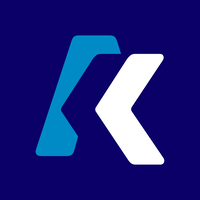
akkroo┃$34m (£27m)
Akkroo (HQ’d in the same building as Beauhurst!) comes fourth in our list of the top exits of 2019 so far. Founded in 2013, this company represented rapid startup-to-exit success story when it was acquired by US marketing software company Integrate. Akkroo’s founders had developed software that helped marketers capture leads at commercial events such as trade shows, essentially by providing an easy to use app through which leads could enter their details, which directly connected to the seller’s CRM software.
Akkroo had yet to achieve the level of sales required to file full accounts. However, at the time of the acquisition, co-founders Christopher Wickson and Andrew Higgs owned 18.07% and 15.39% respectively, making them both more than £4m from the $34m (£27m) deal.
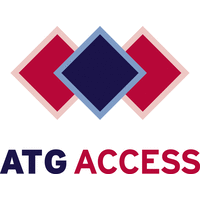
ATG Access┃£22.5m
Perhaps less glamorous than the software developing Akkroo and Audio Network, yet important nonetheless, is the vehicle barrier manufacturer ATG Access. For reference, these are the sorts of barriers and bollards erected outside parliament in the wake of the vehicle-based terrorist attacks in 2017. Similar to Alexander Dennis, ATG Access represents a “Made in Britain” manufacturing success story, with their engineers working across 40 international markets.
Founded in 1990, this is the oldest company to feature on our list of the top exits of 2019. Another scaleup, ATG’s turnover grew from £10m in 2015 to £17m in 2018, winning a place on Ward Hadaway’s list of Manchester’s 50 fastest-growing companies. They were acquired for £22.5m by Hill & Smith, a large holding company who provide a range of infrastructure projects.
Interestingly, at the time of the exit, Lloyds Development Capital owned roughly 50% of the company. This could represent a minor but successful exit for Lloyd’s private equity arm.

Flyt┃£22m
Another exit from the UK’s tech scene, Flyt operates a middleware mobile app that allows users in the hospitality industry to access a wide array of order management and payment processing software. Essentially, Flyt aims to bridge the gap between physical hospitality venues and relevant technology providers, in theory helping restaurants take advantage of the best technology available to them. Clients include UberEats, Just Eat, Nando’s and KFC.
Founded in 2013, Flyt undertook four funding rounds, with backers including Just Eat, TimeOut, and Entrée Capital, an international fund that is split between Israel, the UK and the US. In 2019 they were acquired for £22m by takeaway delivery technology giant Just Eat.
The Top Exits of 2019: IPOs
The disparity between IPOs and acquisitions so far highlights just how rare IPOs are. In 2019 we have seen just three IPOs, one on New York’s NASDAQ, one on the LSE’s AIM, and one on the LSE’s mainboard.
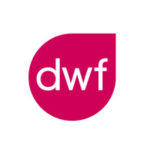
dwf┃£93.7m ipo┃£366m Market cap
Founded in 1977, DWF is an upstart, fast-growing law firm. Headquartered in Manchester, the company has international operations spreading from Australia to the Arab States to Panama. Similar to the other companies on this list, growth ballooned from 2010 onwards, from £82m in 2011 to £236m in 2018. Operating profits have remained consistently high, and in 2019 they IPO’d on the London Stock Exchange, raising £93.7m at a market capitalisation of £366m.
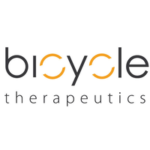
Bicycle Therapeutics┃$60.7m ipo┃$247m Market cap
As with all companies operating in the life science sector, it can be hard for people with non-scientific backgrounds to get to grips with their products. Bicycle Therapeutics seems to offer two main products: Bicycle Conjugates and Immune Oncology.
Bicycle Conjugates are synthetic chemicals that travel through the bloodstream and bind to tumours, transferring toxins into the tumour tissue. Another set of Bicycle Conjugates activate immune responses in tumour tissue without activating similar responses in the surrounding tissue, leading a localised response that only damages the tumour.
Their immune oncology programme uses these conjugates to increase the activity of a certain type of T-Cell, whose activity has been shown to improve outcomes in cases of cancer.
A life science company from Cambridge’s flourishing tech cluster, Bicycle Therapeutics went through several large rounds of funding, appearing to sell large stakes in each. Valued at £35m in 2017, the company then raised $61m through its IPO on NASDAQ, valuing the company at nearly $300m. Backers included a wide range of specialist life science investors, alongside key Cambridge investor Cambridge Innovation Capital.

diaceutics┃£17m ipo┃£53m Market cap
Northern Ireland is generally underrepresented in the UK’s tech scene. The rapid success of diaceutics is therefore something of an anomaly. Similar to Bicycle Therapeutics their product is fairly esoteric. Essentially, they seem to collate data from a broad network of 2500 pharmaceutical laboratories from around the world. By recording the outcomes of diagnostic tests from these labs, their data analytics platform helps to assess which tests may become successful treatments, improving the test-to-treatment pathway.
Founded back in 2005, Diaceutics elicited slow levels of growth in the 2000s, and sales only really kicked in from 2015 onwards, growing from £3m in 2016 to £10m in 2018. The same year they featured on Fast Tracks Tech 100, before raising £17m on the AIM at a £53m market capitalisation.
Discover the UK's most innovative companies.
Get access to unrivalled data on all the businesses you need to know about, so you can approach the right leads, at the right time.
Book a 40 minute demo to see all the key features of the Beauhurst platform, plus the depth and breadth of data available.
An associate will work with you to build a sophisticated search, returning a dynamic list of organisations matching your ideal client.